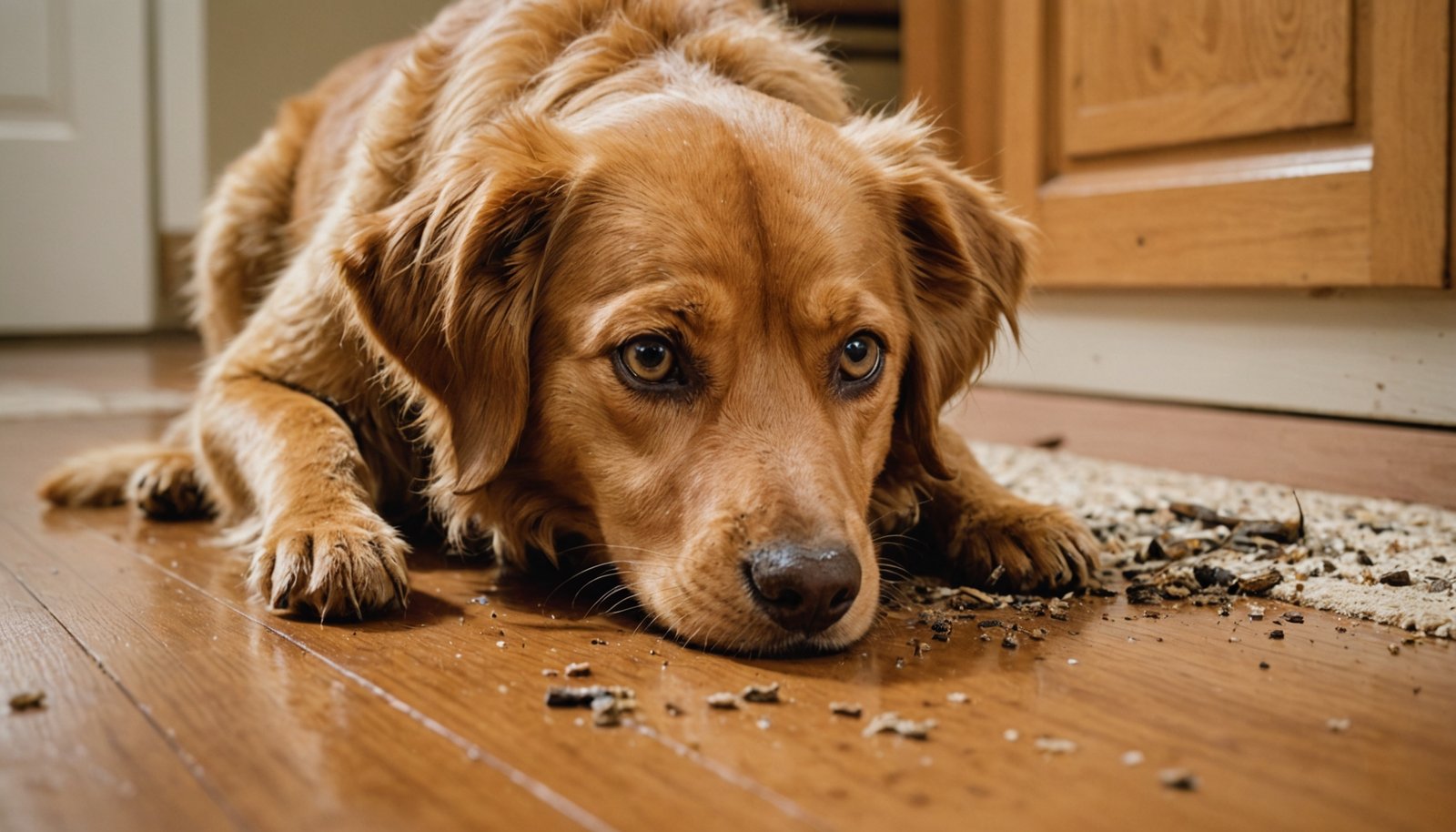Are Termites Dangerous for Dogs and Cats?
Your pets won’t face direct threats from termites since these wood-eating insects don’t bite animals or spread diseases. However, you’ll need to be cautious about termite control methods, as chemical treatments can pose risks to your dogs and cats. While natural solutions like orange oil and vinegar are pet-friendly options, professional pest control offers the safest approach. Understanding the right treatment choices will help you protect both your home and your furry family members.
Key Takeaways
- Termites do not pose direct harm to pets as they primarily consume wood and cellulose materials, not animals.
- Termite bites on pets are extremely rare and unintentional, occurring only during accidental contact.
- The main risk to pets comes from chemical termite treatments rather than the termites themselves.
- Termite droppings are non-toxic to pets, and consuming termites poses no health risks to dogs or cats.
- Natural termite control methods like orange oil and vinegar solutions offer safe alternatives for homes with pets.
Understanding Termite Behavior Around Pets

Although termites can cause significant damage to homes, they pose virtually no direct threat to your pets. Understanding termite behavior helps explain why your pets are safe: these insects focus solely on consuming cellulose-based materials like wood and paper, showing no interest in animals.
While termites have strong jaws for wood consumption, a termite bite to your pet is extremely rare and unintentional.
During termite infestations, these insects prefer staying hidden within wooden structures, actively avoiding contact with pets and humans. Even when termites swarm and become more visible, they don’t engage with pets aggressively.
While you’ll need professional termite control to protect your home from termite damage, you won’t need to worry about your pets’ safety. They can coexist in the same space without harmful interactions.
Common Myths About Termites and Pet Safety

You’ll be relieved to know that many common fears about termites and pets are unfounded myths.
Despite widespread concerns, termites don’t bite pets, their droppings aren’t toxic, and they don’t transmit any diseases to your furry friends.
In fact, if your curious pet happens to eat a termite, there’s no cause for alarm, as these insects are completely harmless and can even provide a small amount of protein.
Myths About Termite Bites
Many pet owners worry needlessly about termites harming their pets through bites, but this common misconception couldn’t be further from the truth.
Termites won’t bite your pets, as these insects are solely interested in consuming wood and other cellulose-based materials.
Despite their powerful jaws designed for chewing through tough materials, termites don’t pose any serious health risks to your dogs or cats.
You’ll find that these insects aren’t aggressive and actually avoid contact with animals altogether.
While you might hear stories about termites being dangerous to pets, these claims are usually misidentified incidents involving other insects like fleas or mosquitoes.
Since termites lack stingers and venom, you can rest assured that the myths about termite bites are unfounded, and your pets are safe from these wood-eating insects.
Direct Health Impact Misconceptions
Despite widespread misconceptions about termite-related health risks, these insects pose virtually no direct threat to your pets’ wellbeing.
Unlike other household pests, termite species don’t transmit diseases to dogs and cats, and they won’t actively attack your furry companions.
You might worry about termite droppings affecting your pets, but there’s no evidence suggesting that frass causes health problems in animals.
Even if your pet encounters termite infestations or accidentally consumes these insects during swarm season, they won’t experience any adverse effects.
In fact, termites can provide a small amount of protein to your pet’s diet.
These common misconceptions often lead pet owners to unnecessary concern.
Rest assured that while termites can damage your home’s structure, they won’t harm your pets’ health.
Pet Exposure Safety Facts
While pet owners often worry about their furry friends encountering termites, several common myths need debunking.
Your pets won’t suffer any harm from direct contact with these wood-eating insects, as termites don’t bite animals or transmit diseases.
Even if your cat catches and eats swarming termites, there’s no cause for concern – it’s actually a harmless source of protein.
You don’t need to worry about termite droppings either, as they’re non-toxic to your pets.
When you’re dealing with an infestation, you can confidently contact a pest control company, knowing there are safe treatments available.
Professional exterminators offer pet-friendly solutions that effectively eliminate termites while keeping your dogs and cats protected from any health risks.
Health Risks of Termite Control Methods

If you’re considering termite control methods, it’s vital to understand that DIY chemical treatments can put your pets at serious risk of poisoning through ingestion or inhalation.
You’ll find that professional pest control services offer safer alternatives, including low-toxicity and organic solutions that protect both your home and your pets.
Working with licensed experts who know about your pets’ presence guarantees proper safety measures are implemented, from selecting pet-friendly treatments to advising on safe waiting periods before allowing pets back into treated areas.
Chemical Treatment Safety Precautions
Because termite treatments often involve potent chemicals, protecting your pets during pest control procedures requires careful attention to safety measures.
When planning safe termite treatment, you’ll need to work with licensed pest control professionals who use low-toxicity treatments specifically designed to minimize pet exposure risks.
Before treatment begins, inform your technician about your pets so they can implement appropriate safety protocols. You should remove your pets from the home during the chemical application process to prevent any potential health complications from exposure.
After treatment, thorough post-treatment cleaning is essential – wipe down surfaces your pets might contact and inspect their bedding, toys, and food bowls for any chemical residue.
These precautions will help guarantee your pest control efforts don’t compromise your pets’ wellbeing.
Natural Control Methods
Natural termite control methods offer pet owners a safer alternative to harsh chemical treatments.
When you’re dealing with termites while keeping your pets safe, these pet-safe options provide effective solutions with low toxicity levels.
While natural control methods can help manage infestations, you’ll want to take into account consulting with pest control professionals for severe cases.
- Orange oil treatments are safe for pets and can effectively target termite colonies.
- Vinegar solutions provide a non-toxic approach to termite control.
- Borate-based products offer long-lasting protection with minimal risk to animals.
- Natural treatments typically have less environmental impact than chemical alternatives.
- Professional pest control experts can recommend the most effective pet-friendly termite treatments.
Remember to keep your pets away from treated areas during and after application, even with natural methods, to guarantee their complete safety.
Professional Vs DIY Treatment Options
When deciding between professional and DIY termite treatments, pet owners must prioritize their animals’ safety alongside effectiveness.
Professional termite services offer distinct advantages, using low-toxicity, pet-safe options that won’t harm your dogs and cats. Licensed experts can eliminate the entire infestation through specialized methods like bait systems and heat treatments, which minimize pet exposure risks.
DIY termite treatments often involve harsh chemicals that can endanger your pets and may not fully address the problem. Without proper expertise, you might miss hidden infestations during termite inspections, leading to ongoing structural damage.
Protecting Your Pets During Termite Treatment
Taking proper precautions during termite treatment is essential to safeguard your pets from potential harm.
To prevent termites while keeping your furry friends safe, you’ll need to work closely with pest control professionals who understand how treatments can affect your pets.
- Tell your pest control service about any pets in your home so they can choose appropriate treatment methods.
- Temporarily relocate your pets during the treatment process to avoid chemical exposure.
- Remove all pet supplies, including food bowls and toys, from areas being treated.
- Guarantee proper ventilation and thorough cleaning after treatment before pets return.
- Ask about pet-friendly options, including low-toxicity or organic treatments.
These steps will help protect your pets while effectively addressing your termite problem, giving you peace of mind about both pest control and pet safety.
Signs Your Pet May Be Affected by Treatments
Despite careful precautions during termite treatments, your pets may still show signs of chemical exposure or allergic reactions.
You’ll need to watch for specific symptoms that could indicate your pet is affected by the chemicals used in the extermination process.
Keep an eye out for excessive scratching, skin irritation, or weeping eyes, as these are common signs of allergic reactions.
If your pet develops gastrointestinal distress, including diarrhea or vomiting, they may have been exposed to harmful treatment chemicals.
Respiratory issues like coughing can also indicate that your pet has inhaled these substances.
It’s essential to monitor pets closely after any termite treatment and contact your veterinarian immediately if you notice these symptoms.
Quick action can prevent more serious health complications from developing.
Conclusion
You’ll be relieved to know that termites themselves don’t pose a direct threat to your pets. However, the real danger lies in the treatments used to eliminate them. Always inform your pest control provider about your pets, opt for pet-safe methods when possible, and follow evacuation guidelines strictly. By staying vigilant and choosing the right treatment approach, you can keep both your home and pets safe.

